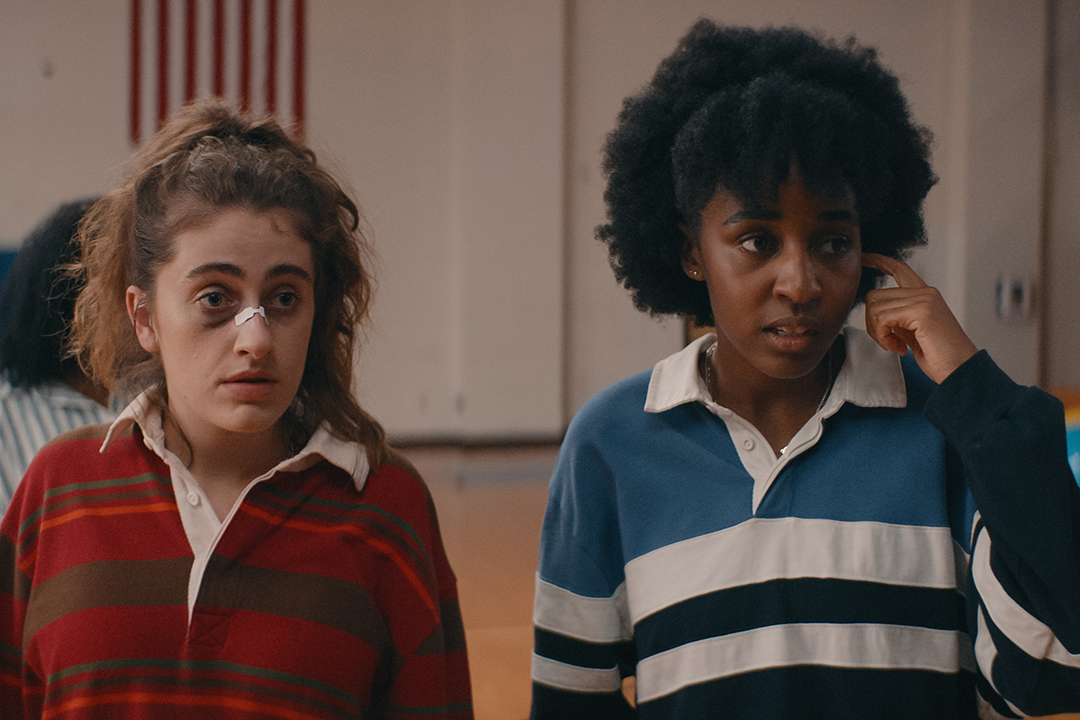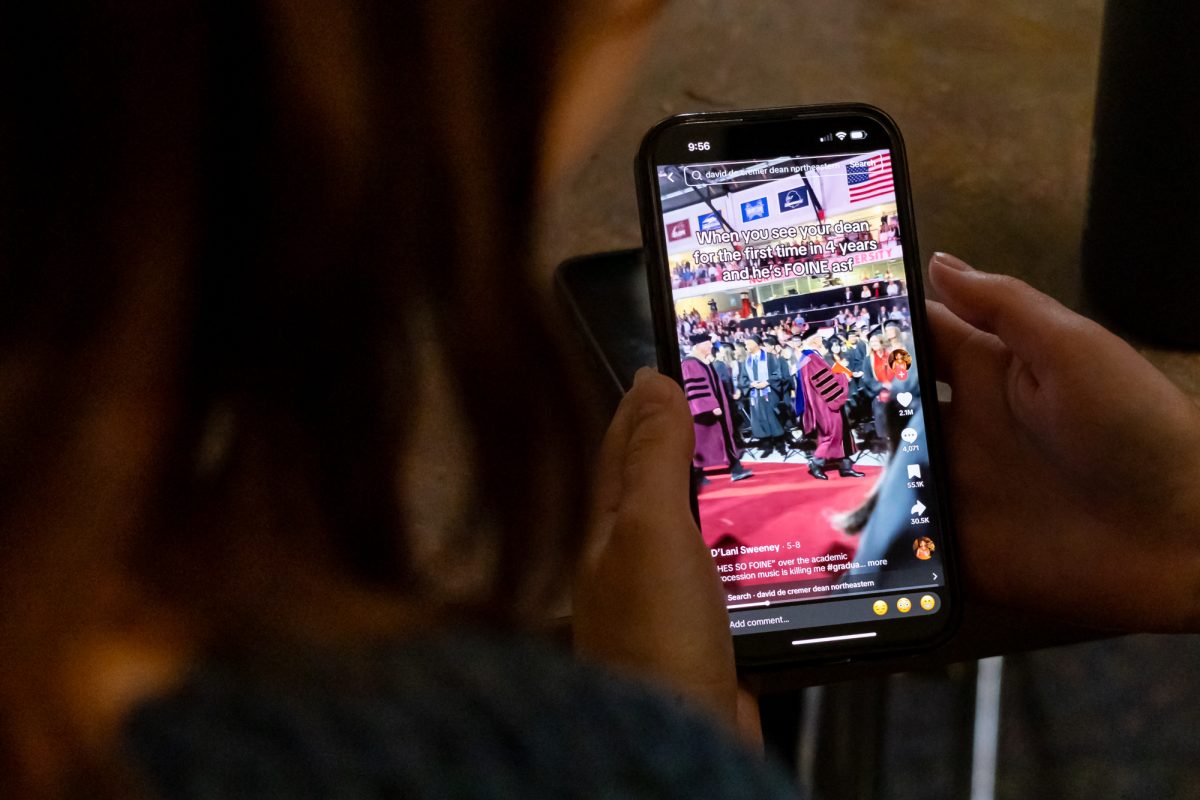The plot of two unpopular high schoolers trying to get laid before graduation is not an unfamiliar one; it’s been done in “American Pie,” “Superbad,” “The To Do List” and dozens more. But with “Bottoms,” the method is somewhat unconventional — as the principal refers to them, “ugly, untalented gays” Josie (Ayo Edebiri) and PJ (Rachel Sennott) start a fight club to spend time with their cheerleader crushes Isabel (Havana Rose Liu) and Brittany (Kaia Gerber) under the guise of promoting self-defense for women.
“Bottoms” headlined the SXSW film festival in March before opening in limited release Aug. 25, grossing $8.5 million at the domestic box office and receiving widely positive reviews.
“Bottoms” succeeds in many ways: It has a great ensemble cast, plenty of laughs and campy direction that feels somehow both nostalgic and contemporary. But the most admirable aspect of “Bottoms” is its strikingly original screenplay, which manages to pay homage to the teen sex comedies that came before it while also subverting classic tropes to tell a lesbian, feminist(-ish) story that cleverly comments on performative activism, lesbian fetishization and the experience of being young and queer.
The film opens with Josie and PJ getting ready to attend the state fair at the start of the school year, PJ confident that this is the year they will finally lose their virginities and Josie cynically objecting. At the fair, after a hilariously awkward interaction between the two and Isabel and Brittany, they witness an argument between Isabel and her quarterback boyfriend Jeff (Nicholas Galitzine), and Josie ends up accidentally tapping Jeff with her car in a misguided attempt to defend Isabel.
After a severe overreaction from the rest of the football team, Josie makes up a story about starting a self-defense club to avoid disciplinary action from the principal, and the fight club is born. But when Josie and PJ fib about going to juvie over the summer to increase their street cred and attract Isabel and Brittany to the club, their lies quickly spiral out of control.
Much of the “Bottoms” buzz undoubtedly stems from the film’s fantastic cast. Edebiri’s excellent comedic timing steals many a scene; she particularly shines during Josie’s several long-winded monologues, such as her fatalistic speech near the beginning of the film predicting the horrors of closeted life as an adult. She also exhibits an easy, charming chemistry with Liu, and the romance between Josie and Isabel is one of the most earnest parts of the film.
Sennott is entertaining as always as a selfish, horny caricature that represents the base instincts of all teens, and Galitzine likewise does a good job of playing the promiscuous, himbo football player present in most high school comedies. Though they are playing clichés, the actors manage to infuse the roles with their own unique humor.
Another standout performance comes from former NFL star Marshawn Lynch, who plays the negligent history teacher who agrees to be the fight club’s adviser. His improvisations make for some of the funniest moments in the film; for example, when he finds out the club was a ruse for Josie and PJ to seduce cheerleaders, he delivers a long and disappointed speech denouncing feminism. Edebiri and Sennott testify that it was impossible to maintain a straight face during filming.
“Bottoms” gets at a very specific experience that other teen sex comedies lack — though Josie and PJ are essentially loser virgins like the protagonists of any other films in the genre, the loneliness and rejection they face is specific to queer women. As the film points out jokingly, Josie and PJ are not hated simply because they are gay, but because they are also untalented. Throughout the film, they are continually expected to set themselves apart as not just lesbians but “cool lesbians” — lesbians that are as strong as or stronger than the men they claim to be able to defend themselves against.
This pattern continues when, in an effort to expose their lies and humiliate the fight club, football player Tim (Miles Fowler) pits fight club member Hazel (Ruby Cruz) against a male wrestler to a disastrous end. In the climactic scene of the movie, Josie, PJ and the rest of the fight club reunite to defend their football team against the opposing high school’s team, proving that they were underestimated all along. While at this point the film veers into ridiculous territory, it drives home the point that queer women must be exceptional in order to be considered “normal” or even accepted as a peer.
In both comedy and representation, “Bottoms” is a generation-defining achievement. In addition to its major themes of the struggle for acceptance and the dangers of false empowerment, it also touches on a number of near-universal queer experiences. PJ undergoes one such experience when she finds out her longtime crush Brittany is straight, and conversely, the revelation that Isabel is interested in Josie is surprising and triumphant. When PJ kisses Hazel in a moment that required a major diversion, the reactions range from disgust to perverse fascination, both of which are negative but extremely typical reactions to queer public displays of affection.
“Bottoms” is made by and for young queer people — and based on its success, more genres would benefit from incorporating queer stories.











